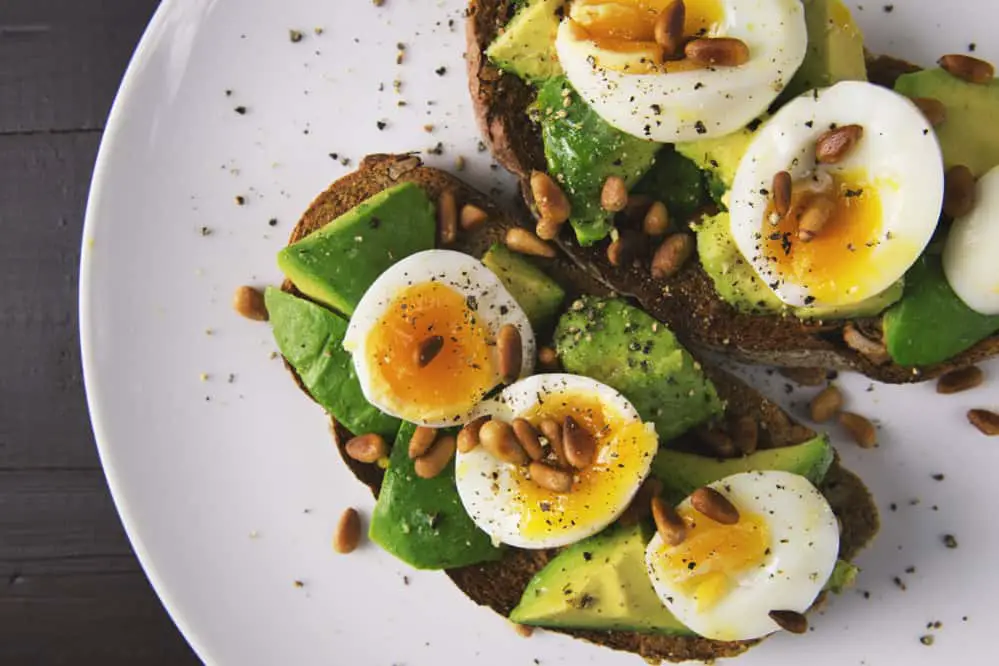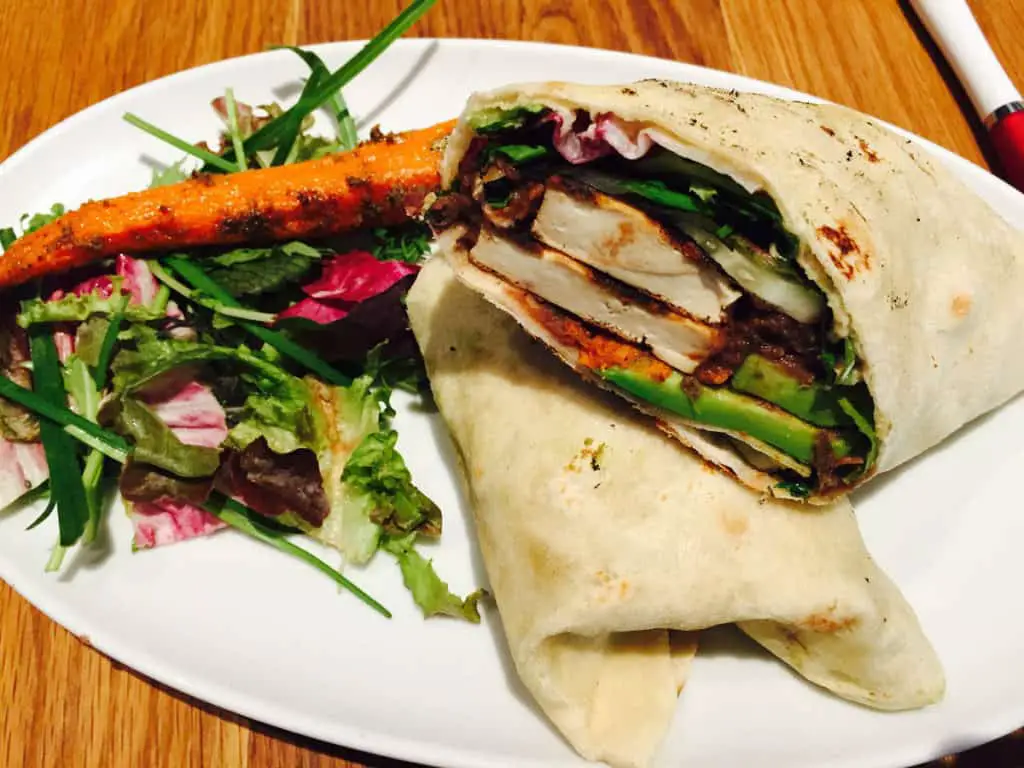Ok, not sure about you, but I’ve heard a lot of things about the benefits of coconut oil; I’ve also read some negative points as well. This got me thinking, what else can Coconut oil be used for? Off I went surfing the web to try and answer my question.
I already know that it can make an excellent skincare product. My wife and my two girls made up a concoction of Coconut Oil and bicarbonate of Soda as a face wash/mask – my wife loves it.
What are the benefits of coconut oil, and what can it be used for? The short answer is it can be used for skincare, haircare, reduce weight, body immunity, and digestion.
If you would like a bit more information and explanation for the benefits of Coconut Oil, please keep reading.
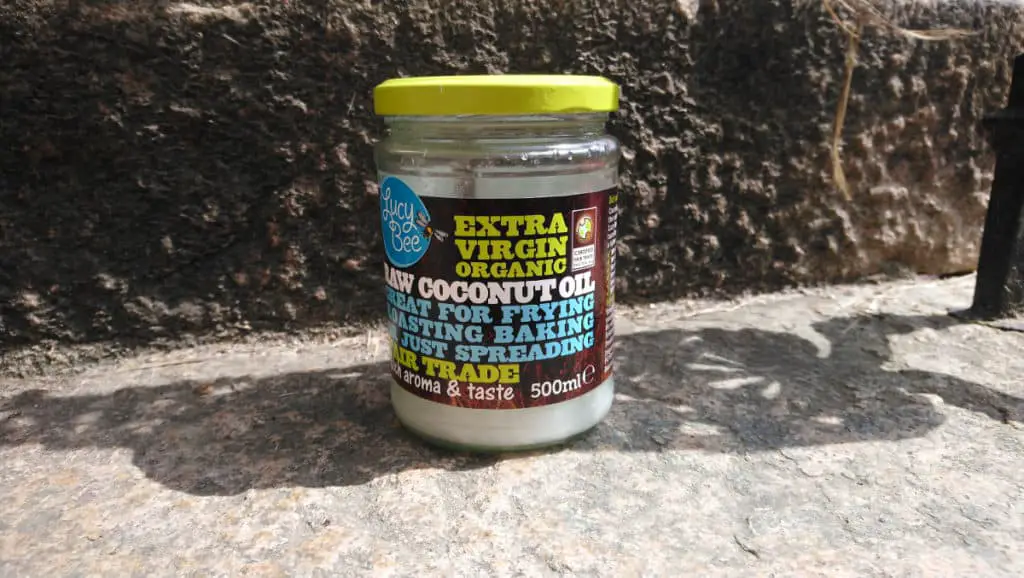
Where Does Coconut Oil Come From?
The main coconut-producing region is the Dhofar region of Oman in the Middle East, but that’s not the only place, they can be grown all along the Persian Gulf, the Red Sea, and the Arabian Sea coasts. The reason for this is that these seas are tropical and provide enough humidity (through seawater evaporation) for coconut trees to grow.
The coconut has a rough outer cover. Underneath it is a fleshy white part, and at the core is a space filled with coconut milk as termed by many people.
The flesh and the sap contain beneficial coconut oil. Coconut oil is also known for its health benefits besides being a source of food.
Composition of Coconut Oil
Ok, this bit might be a bit boring but please stay with me. Coconut oil benefits are derived from its composition.
Coconut oil contains Saturated fat, Polyunsaturated fat, and Monounsaturated. However, some of these fatty acids are not harmful to the body as they interact well with the body.
An example of these fatty acids includes lauric acid, capric acid, caproic acid, and myristic acids. Each of the above fatty acids has its own importance, for instance, capric acid is antibacterial, and the lauric acids kill viruses.
The fatty acids found in coconut oil include:
Lauric acid: 49%
Myristic acid: 18%
Caprylic acid: 8%
Palmitic acid: 8%
Capric acid: 7%
Oleic acid: 6%
Linoleic acid: 2%
Stearic acid: 2
6 Benefits of Coconut Oil
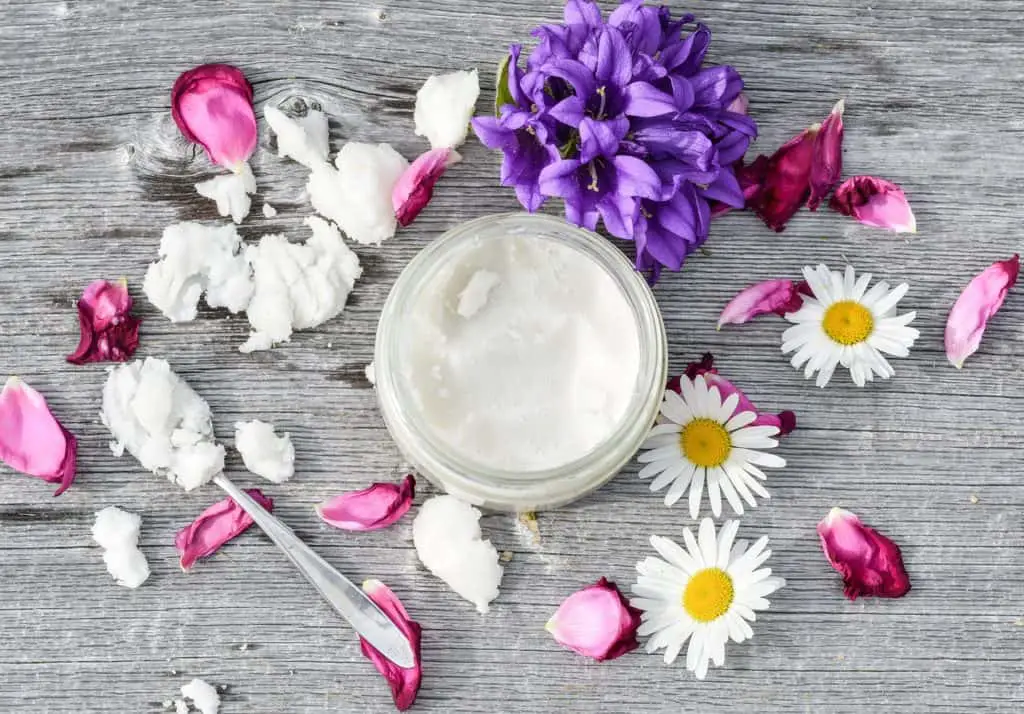
1. Skin Care
Coconut oil is an excellent moisturizer for the skin. The oil is fit for use for almost all skin types, but it is always best to check this out yourself, we as a family have used this for dry skin, eczema and sunburn.
The oil is naturally acquired and thus does not have any side effects on the skin. I’ve not found any in my research so far.
Most skin types do not react to the oil, unlike other oils that lead to rashes. As my youngest has eczema, we must be careful about what we use on her skin. Due to its moisturizing effect, it leaves the skin smooth and healthy. Once it has soaked in, the oily shine disappears.
It can also be used to reduce the appearance of wrinkles in the skin that results from dry cells of the skin. This is the part that my wife loves.
Coconut oil is antibacterial in nature and thus helps to manage various bacterial skin diseases like eczema and dermatitis.
2. Hair Care

Coconut oil helps in the growth of hair and shiny look when applied. I like the sound of this as I’m starting to thin on top.
The oil reduces the instances of protein loss in the scalp. Proteins are known to be the best nutrients for the healthy growth of hair.
Many available hair products are made of coconut oil for this reason. The oil helps to prevent hair damage and to prevent the scalp from drying out. We have used coconut oil for dry and itchy scalp, and it helps.
Since the oil is antibacterial, it prevents bacterial growth in your scalp that leads to the development of dandruff.
3. Used to Help Reduce Weight
Coconut oils are very easy to digest; therefore, they, do not accumulate in the body tissues, as it consists of Medium Chain Fatty acids.
Medium-chain fatty acids are metabolized differently than longer chain fats. These medium-chain fats are sent straight to the liver and used for energy right away.
Additionally, coconut oil helps in reducing abdominal obesity, which is a significant problem for women. The oils are useful in maintaining the healthy functioning of the body glands, such as thyroids.
The oils are known for the function of burning excess fats, thus enhancing the metabolic functioning of the body.
This way, it can help the pancreas to function well. The oil, when used regularly along with healthy eating and exercise, can assist you in your weight loss goals.
When I’m cooking, and I need to add oil, I always reach for Coconut oil.
4. Help Boost the Immune System
Immunity is the ability of the body to resist diseases. The oil can be used to boost this ability. The ingredients of coconut, such as the lauric acids and caprylic, are antibacterial, antifungal, and antiviral.
The lauric acid is converted by the body, a compound known as monolaurin, which kills the bacteria and the viruses in the body.
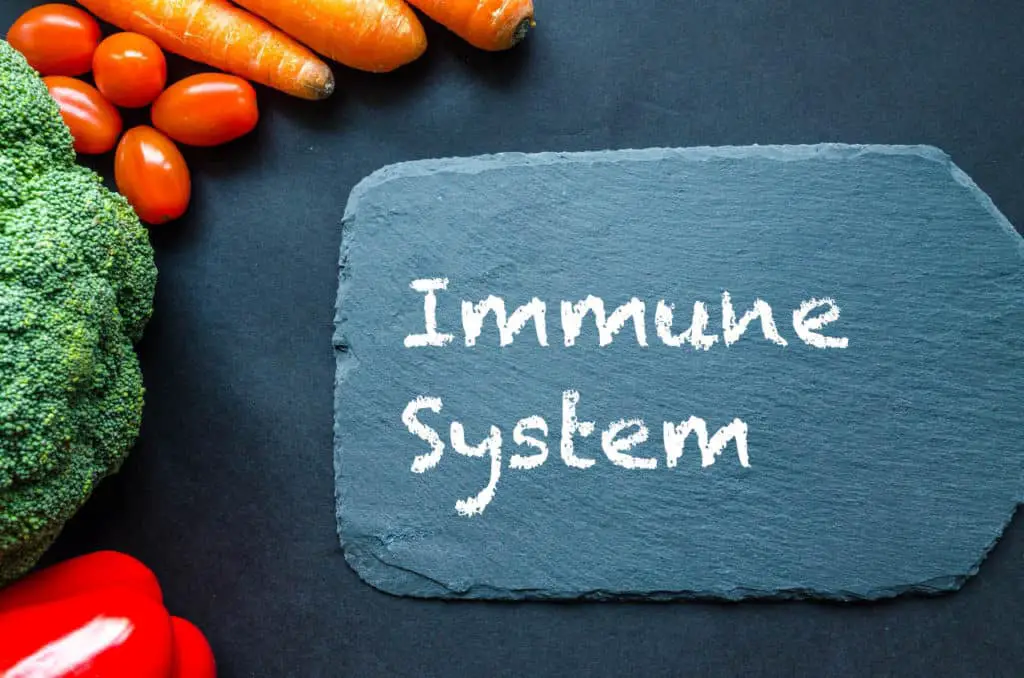
The coconut oil, therefore, prevents herpes, cytomegalovirus, and other viral, bacterial, and fungal diseases. Please remember that Coconut Oil is not a miracle cure for any illness. I know there is a lot of research out there that backs up its benefit.
There are many other foods out there that have also been proven to increase your immune system.
Here are a few ideas of foods that can help
- Garlic
- Berries
- Mushrooms
- Fish
I include the use of Coconut oil in a balanced diet, but I don’t consume it in large quantities.
5. Helps in Digestion

This is something I did not expect Coconut Oil helps your digestion system.
The digestion system (Gastrointestinal GI) is one of the essential processes in our bodies. It is crucial to our overall health and wellbeing.
Still, a lot of people can suffer from many health problems such as Irritable Bowel Syndrome (IBS), Inflammatory Bowel Disease (IBD), Ulcerative Colitis, Crohn’s Disease, Diverticulosis, Twisted and Redundant Colon, Proctitis, and Stomach Ulcers.
When using coconut oil for cooking the foods that are prepared using the oil are less associated with problems of bloating due to improper digestion.
The antimicrobial properties of the oil help to kill the microbes in the stomach that are likely to cause congestion in the stomach.
Some microbes in the intestines and the stomach do prevent proper digestion from taking place.
Therefore the Coconut oil can be used to relieve problems such as Irritable Bowel Syndrome (IBS), Inflammatory Bowel Disease (IBD), Ulcerative Colitis, Crohn’s Disease, Diverticulosis, Twisted and Redundant Colon, Proctitis, and Stomach Ulcers.
Coconut is also known to be an aid in nutrients absorptions, such nutrients such as vitamins and minerals.
6. Help Heals Skin Injuries
Coconut oil can be used as an ointment to apply to damaged skin. When the oil is smeared on the wound, it can prevent dust and microorganisms from getting into the damaged tissues.
- Coconut oil is a natural skin healer.
- Organic Coconut oil has antibacterial properties, which could help reduce the chances of infections
- Coconut oil decreases the pain and burn-related to cuts, sunburn, and reduces inflammation.
- Antifungal properties, which also helps prevent fungal and yeast infections to the skin surface.
- Coconut oil has nourishment properties that heal cuts and can prevent scarring.
I’ve not used Coconut oil on scratches, but we have used it on Sunburn, and it works well.
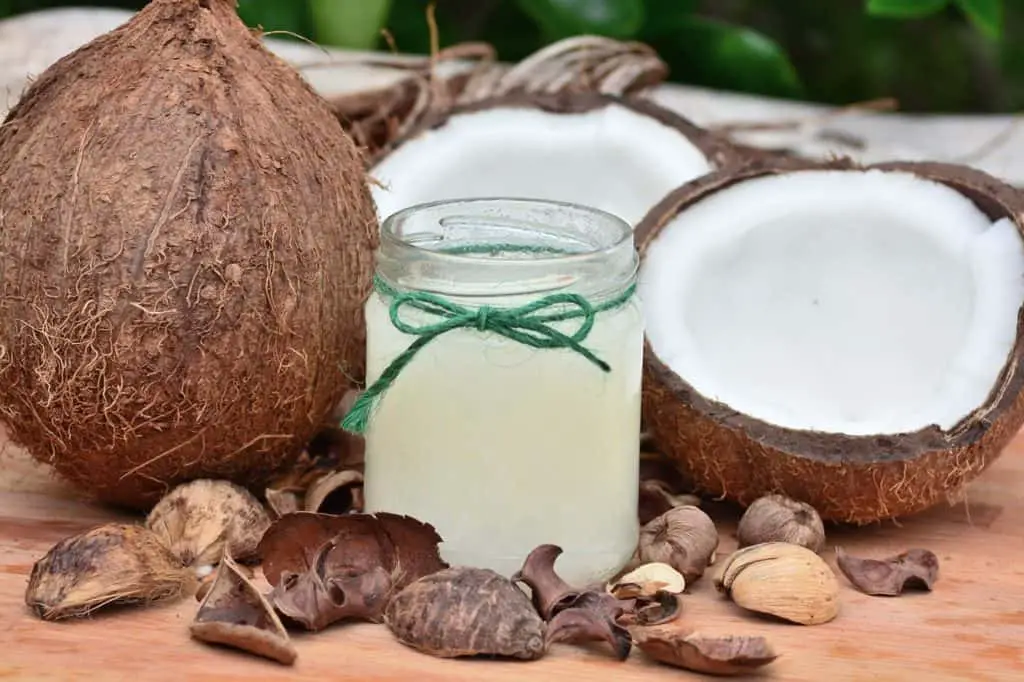
My Thoughts on Coconut Oil
Well, I did not realize how many uses there are for Coconut Oil. I’ve just selected a few applications for this article.
There is no doubt that there are many advantages to using the oil, but from what I’ve found, there are still studies going on for the usage of Coconut Oil and its benefits.
I have read recently there is a concern about the high saturated fat content and this can be bad for you, but then I’ve also read other studies that suggest saturated fat is not as bad for you as people first thought and the recommended 20 g per day might be a bit low, but until there are further studies around saturated fat to 20 g per day is sticking.
Does this mean I’m going to stop using Coconut Oil? Nope, I’m still going to cook with it as part of my balanced diet, well I am partial to olive oil when I’m cooking roast potatoes.
The fact that we need to stay clear of is man-made trans-unsaturated.
References Used in This Article
- An open-label pilot study to assess the efficacy and safety of virgin coconut oil in reducing visceral adiposity.
- Coconut oil and palm oil’s role in nutrition, health and national development: A review
- The potential of herbs in skin protection from ultraviolet radiation.
- Fatty acids and derivatives as antimicrobial agents
- Novel antibacterial and emollient effects of coconut and virgin olive oils in adult atopic dermatitis.
- Effects of dietary coconut oil on the biochemical and anthropometric profiles of women presenting abdominal obesity.
- Effect of mineral oil, sunflower oil, and coconut oil on prevention of hair damage.
- Effect of topical application of virgin coconut oil on skin components and antioxidant status during dermal wound healing in young rats.

